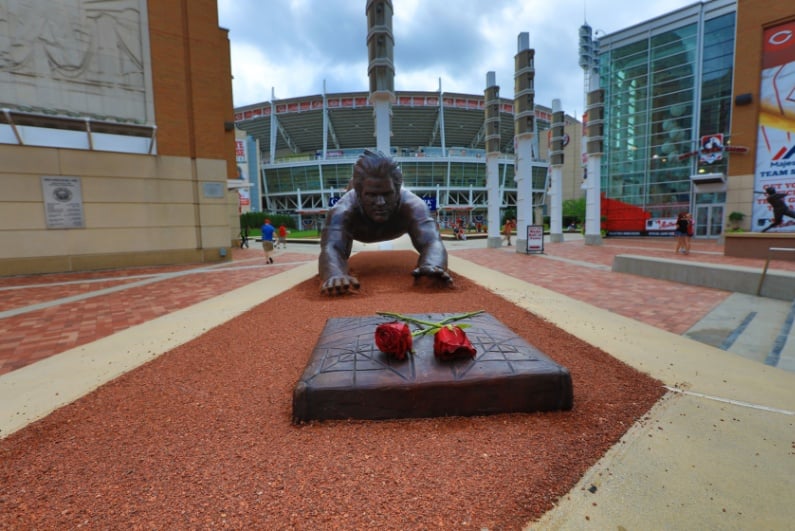Being dead gets you reinstated
In a decision that will likely come as a shock to many sports fans, Major League Baseball (MLB) Commissioner Rob Manfred has announced that Pete Rose, “Shoeless” Joe Jackson, and other deceased baseball players have been expunged from MLB’s “permanently ineligible” list. The major upshot of the decision is that both men could now be inducted into National Baseball Hall of Fame, if voters see fit to elect them.
Rose was banned from the game in 1989, Jackson in 1921; both had to live – and die – with the shadow of gambling hanging over their otherwise Hall of Fame-worthy legacies.
In a statement, Manfred wrote: “Obviously, a person no longer with us cannot represent a threat to the integrity of the game. Moreover, it is hard to conceive of a penalty that has more deterrent effect than one that lasts a lifetime with no reprieve.”
Committed sports’ cardinal sin
Pete Rose would have clearly been a first-ballot Hall of Famer. He is the all-time leader in base hits, games played, at-bats, and more. Rose was part of three World Series-winning teams and won three batting titles, two Gold Gloves, Rookie of the Year, and Most Valuable Player once. Nicknamed “Charlie Hustle” for his unrelenting energy and passion on the field, Rose was one of the greatest players of all time.
finally admitted to also betting on the Reds
After an investigation by attorney John Dowd, Rose was found to have bet on games while manager of the Cincinnati Reds from 1985 to 1987, the first two years of which he also played for the team. He agreed to be placed on the permanently ineligible list in exchange for no official finding on his gambling. Rose always denied that he bet on his own team, but in his 2004 autobiography My Prison Without Bars, he finally admitted to also betting on the Reds.
Pete Rose passed away in the fall of 2024. He had campaigned multiple MLB commissioners for reinstatement to no avail.
“Shoeless” Joe Jackson would have also been a lock Hall of Famer – his .356 career batting average is the fourth highest in league history. He was infamously part of a group of eight Chicago White Sox players who took money from a gambling ring to throw the 1919 World Series.
Jackson said that while he did take $5,000, he never did anything to throw any games. His performance bore that out – he had a fantastic Series at the plate and did not make an error in the field. But he did take the money, knew his teammates did, and for all anyone knows, he could have played even better. Despite being acquitted in a public trial, all eight players were banned from baseball. They are all now reinstated.
Opinions differ on Rose
The Black Sox scandal was the impetus for Major League Baseball’s Rule 21, which, among other things, states: “Any player, umpire, or Club or League official or employee, who shall bet any sum whatsoever upon any baseball game in connection with which the bettor has a duty to perform, shall be declared permanently ineligible.”
In 1991, the National Baseball Hall of Fame decided that anyone on the permanently ineligible list would also be ineligible for enshrinement.
Betting on baseball damages the integrity of the game, and if you do it, you’re gone.
Baseball fandom has been torn on Rose’s ineligibility for the Hall. Many believe he should be – and should continue to be – persona non grata for blatantly violating what is arguably the most important rule in the game. Betting on baseball damages the integrity of the game, and if you do it, you’re gone. Forget Manfred saying that Rose “cannot represent a threat to the integrity of the game” now that he is deceased; ignoring his transgressions just because he is gone is a threat in and of itself.
Many fans, though, have wanted Rose in the Hall of Fame for years. Their argument is that he should be judged for the kind of player he was and since his gambling on baseball came when he was a manager, it shouldn’t matter.




